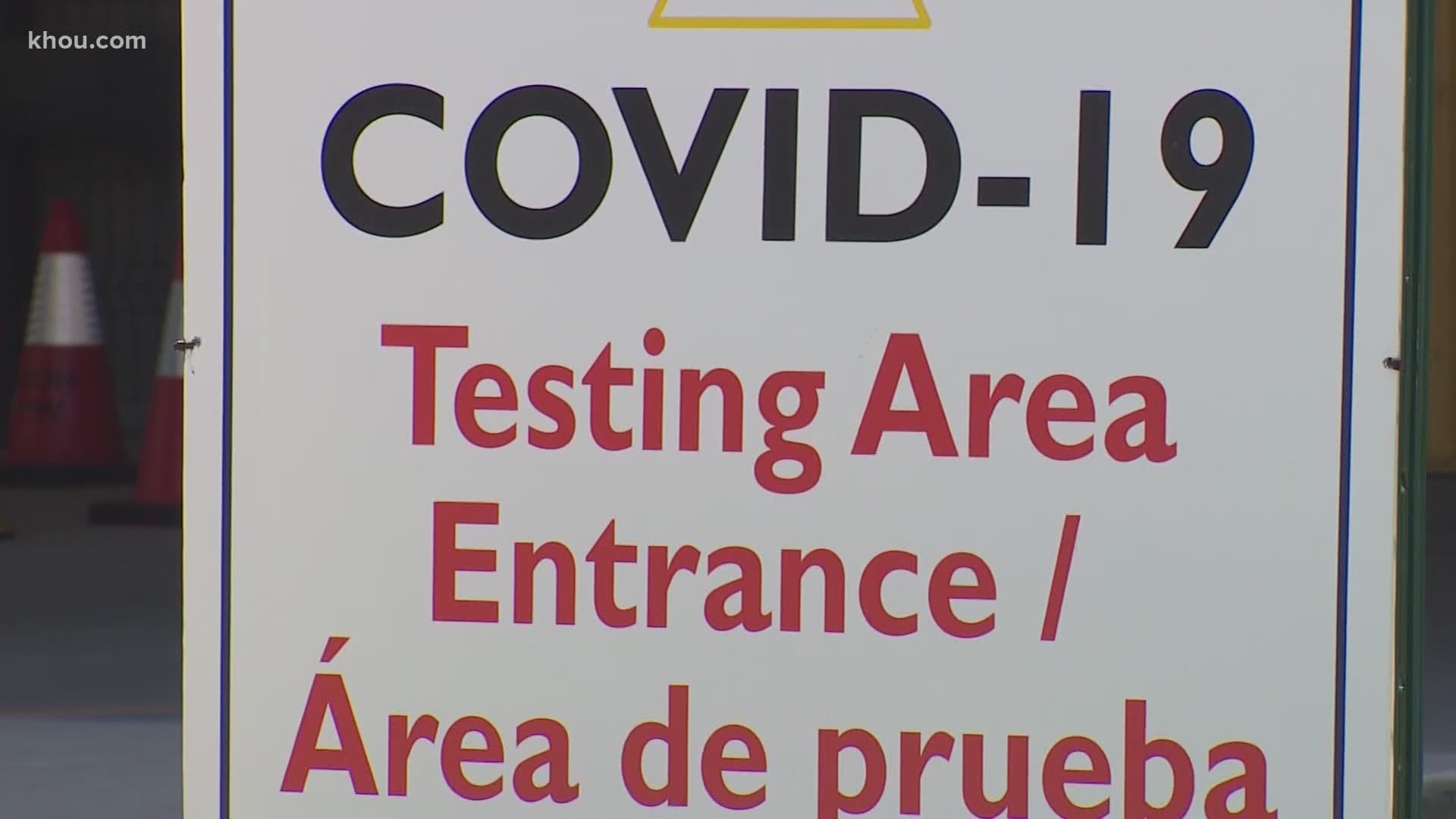HOUSTON — To help slow the spread of COVID-19 in the city limits, recovery czar Marvin Odum announced a plan today to expand testing and add 300 more contact tracers.
The $200 million cost comes from money received by the federal government CARES Act.
Odum, who was appointed to his role by Mayor Sylvester Turner in mid-April, expects to have 24 testing sites opened throughout the city by the end of the month. They will be a combination of fixed drive-through sites and mobile testing units.
They will also largely focus on areas will vulnerable populations that are most at risk of contracting the novel coronavirus, though Odum said the sites will be moved as needed. Testing is free and available to everyone.
“COVID-19 remains a real and present danger in all our lives. As we continue to reopen Houston, we must do it safely,” Odum said.
The city also plans to expand its contact tracing, a process that tracks where a positive person has been and who they’ve been in contact with. Contact tracers then reach out to everyone that person has contacted and steps they need to take.
Dr. David Persse, the city’s leading health authority, has said contact tracing is what helped the city stop the spread of the virus after a person returned from a river boat cruise in Egypt.
Houston already has 125 contact tracers. To fill the rest, health officials are turning to local universities and plan to hold job fairs.
But, Odum and health officials noted, slowing the spread goes beyond testing and contact tracing. They also stressed the importance of individual behavior—asking that people continue to social distance and wear face coverings when in public.
“(We) need everyone to continue to do what we know has worked this far,” Odum said. “That will enable us to safely reopen Houston.”
Mayor Sylvester Turner put out a plea to Houstonians to not let their guards down as the state reopens.
“This is still a health care crisis,” Turner said. “The virus is still here. And what we are trying to do in the very best way is to manage the virus while trying to open (the city).”
There were 88 new positive cases announced in the city Thursday, bringing its total to 4,227. There were also three new deaths, all men 50 years or older with underlying health issues.
To date, health officials estimate 36,000 people have been tested in the city.
Turner said he’s concerned that by reopening too soon would lead to a spike in cases. Texas Gov. Greg Abbott announced earlier this week his second phase of statewide reopening that allows beauty, nail and tanning salons, along with barbershops, to reopen Friday. An executive order signed by the governor also allows for new guidelines for funerals and weddings with social distancing in place.
Turner said he hopes the governor’s phase in works, but “my concern is by moving too quickly and too fast, we’re not going to manage this virus very well.”
“We can have a healthy society with this virus and recovery economically with this virus,” Turner said. “And the two can work together if we are very measured in our actions and we don’t rush it.”
- 'It's not sustainable' | 10% of Houston-area restaurants at risk of closing for good
- Update: Houston flyover of rare, historic WWII planes postponed till Sunday due to weather
- President Trump valet tests positive for COVID-19; president tests negative
- Map: Keeping track of Houston-area coronavirus cases
Coronavirus symptoms
The symptoms of coronavirus can be similar to the flu or a bad cold. Symptoms include a fever, cough and shortness of breath, according to the Centers for Disease Control. Some patients also have nausea, headaches and stomach issues.
Most healthy people will have mild symptoms. A study of more than 72,000 patients by the Centers for Disease Control in China showed 80 percent of the cases there were mild.
But infections can cause pneumonia, severe acute respiratory syndrome, kidney failure and even death, according to the World Health Organization. Older people with underlying health conditions are most at risk for becoming seriously ill. However, U.S. experts are seeing a significant number of younger people being hospitalized, including some in ICU.
The CDC believes symptoms may appear anywhere from two to 14 days after being exposed.
Human coronaviruses are usually spread through...
- The air by coughing or sneezing
- Close personal contact, such as touching or shaking hands
- Touching an object or surface with the virus on it, then touching your mouth, nose or eyes before washing your hands.
Help stop the spread of coronavirus
- Stay home when you are sick.
- Eat and sleep separately from your family members
- Use different utensils and dishes
- Cover your cough or sneeze with your arm, not your hand.
- If you use a tissue, throw it in the trash.
- Follow social distancing
Lower your risk
- Wash your hands often with soap and water for at least 20 seconds. If soap and water are not available, use an alcohol-based hand sanitizer.
- Avoid touching your eyes, nose, and mouth with unwashed hands.
- Avoid close contact with people who are sick.
- Clean and disinfect frequently touched objects and surfaces.
- If you are 60 or over and have an underlying health condition such as cardiovascular disease, diabetes or respiratory illnesses like asthma or COPD, the World Health Organization advises you to try to avoid crowds or places where you might interact with people who are sick.
Get complete coverage of the coronavirus by texting 'FACTS' to 713-526-1111.

